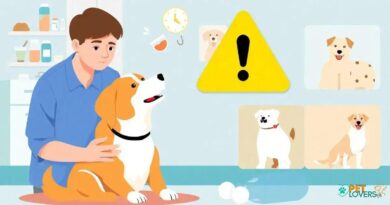What is: Anal abscess in dogs
What is an Anal Abscess in Dogs?
An anal abscess in dogs is a painful condition that occurs when an infection develops in the anal glands, leading to the formation of a pus-filled cavity. These glands, located on either side of the dog’s anus, can become blocked or infected due to various reasons, including poor hygiene, underlying health issues, or dietary factors. Understanding this condition is crucial for dog owners to ensure timely treatment and prevent complications.
Symptoms of Anal Abscess in Dogs
Dogs suffering from an anal abscess may exhibit several symptoms that indicate discomfort or pain. Common signs include excessive licking or biting at the anal area, swelling, redness, and discharge. Additionally, affected dogs may show signs of distress, such as whining, difficulty sitting, or changes in their usual behavior. Recognizing these symptoms early can help in seeking prompt veterinary care.
Causes of Anal Abscess in Dogs
The primary cause of anal abscesses in dogs is the blockage of the anal glands, which can occur due to impacted anal sacs, infections, or inflammation. Factors such as obesity, poor diet, and lack of regular grooming can contribute to this blockage. Additionally, certain breeds may be more predisposed to developing anal gland issues, making it essential for owners to be vigilant about their dog’s health.
Diagnosis of Anal Abscess in Dogs
Diagnosing an anal abscess typically involves a thorough physical examination by a veterinarian. The vet will assess the anal area for signs of swelling, discharge, or pain. In some cases, further diagnostic tests, such as ultrasound or cytology, may be necessary to determine the extent of the infection and rule out other potential issues. Early diagnosis is key to effective treatment.
Treatment Options for Anal Abscess in Dogs
Treatment for an anal abscess usually involves draining the pus and addressing the underlying infection. This may require sedation or anesthesia, depending on the severity of the abscess. Veterinarians may also prescribe antibiotics to combat the infection and anti-inflammatory medications to reduce pain and swelling. In some cases, surgical intervention may be necessary to prevent recurrence.
Home Care and Management
After treatment, proper home care is essential for your dog’s recovery. Keeping the anal area clean and dry is crucial to prevent further infections. Your veterinarian may recommend specific cleaning solutions or medicated wipes. Additionally, monitoring your dog’s behavior and ensuring they follow a healthy diet can help maintain their overall well-being and prevent future issues.
Preventing Anal Abscess in Dogs
Preventing anal abscesses involves regular grooming and monitoring your dog’s anal glands. Regular vet check-ups can help identify potential issues before they escalate. Ensuring your dog has a balanced diet rich in fiber can promote healthy bowel movements and reduce the risk of anal gland problems. Additionally, maintaining a healthy weight can help prevent obesity-related complications.
When to See a Veterinarian
If you notice any signs of discomfort or abnormal behavior in your dog, it is essential to consult a veterinarian promptly. Delaying treatment can lead to more severe complications, including systemic infections or chronic anal gland issues. Regular veterinary visits can help catch potential problems early, ensuring your dog remains healthy and happy.
Understanding the Importance of Anal Health
Maintaining your dog’s anal health is vital for their overall well-being. Anal abscesses can be painful and distressing for dogs, impacting their quality of life. By being proactive about your dog’s hygiene and health, you can help prevent these conditions and ensure they live a comfortable, happy life. Educating yourself about anal health will empower you to take the best care of your furry friend.



